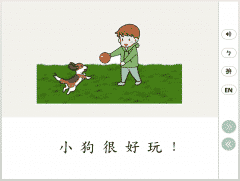It depends… but the following formula serves as a good rule of thumb.
Time to Learn Chinese = Level of Proficiency x Age of Learner
Let’s break the question down. Unlike the English language, Chinese isn’t alphabet-based. A Chinese character contains an indication of both meaning and pronunciation. There are more than 100,000 Chinese characters but practically speaking, literacy is achieved between 3,000-5,000 characters. While 3,000 is a mere subset of the vast number of Chinese characters that exist, it is still significantly more than the 26 letters of the English language or the 50 letters of the Japanese language.
Now, assuming you want to become somewhat fluent in Mandarin, how long does it take to remember 3,000 characters? For adults (past the age of 30 like me), it’s hard because our memory-bank is practically non-functional. I can hardly remember what I had for breakfast yesterday… hence, adults learning Chinese must implement a rigorous learning routine (including tools like spaced repetition and flash cards) to master Chinese. Experts estimate that it takes 2,200 class hours but when you take into consideration of memory lapses and life distractions, no wonder it’s so difficult for adults to master the Chinese language…
But for kids (especially those under 11), it’s much much easier!!! Why?
- Because children learn languages “unconsciously” — via the deep motor area of their brains — so that it naturally occurs and is less taxing. Meanwhile, the areas of our brains responsible for language acquisition stop growing rapidly after age 11, making it much harder for older kids/adults to master a new language. Studies have also shown that kids under 7 learn languages by recording the statistics of a language’s structural and sound frequencies. In short, their brains are just wired differently.
- Because children aren’t afraid to make mistakes. Kids don’t get embarrassed when they mispronounce a word. They don’t mind asking “what does that mean”? After all, they are still learning new vocabularies even in their native language so they have no problem admitting ignorance for the new language. As long as they have an incentive to learn (such as the need to communicate with others or to read interesting stories), they will learn naturally.
- Because children need fewer words to communicate. As adults, we feel like we need to communicate in full sentences with complete thoughts. Kids don’t. They have a limited number of words in their native tongue so they’re used to combining words with body languages with hand motions and everything else necessary to communicate their thoughts. Hence, when acquiring a new language, they only need to learn a limited number of words/rules to achieve the same proficiency as their native language.
The longer we wait to start our kids on a new language, the wider the gap become between their proficient languages and the new language — thus making it harder intellectually, emotionally, and socially for kids to learn.
 Help your kids out. Get there started on Chinese asap with our free guided lessons!
Help your kids out. Get there started on Chinese asap with our free guided lessons!

